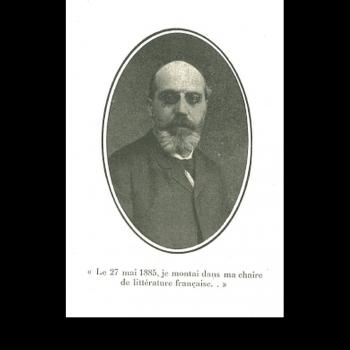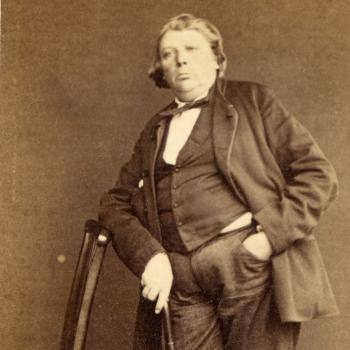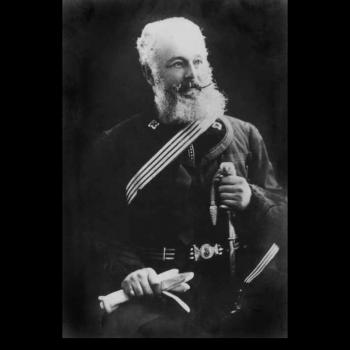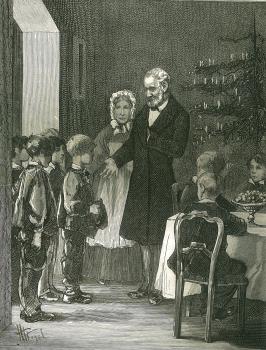16th June 2017
The Parisian Paul Stapfer was born in 1840 and graduated in Classics in 1860. In 1866 he joined the staff at Elizabeth College, Guernsey, to teach French. He calculated that this employment would give him time to work on his doctorate in English literature, and that he could thus both improve his English and observe the doings of Victor Hugo. He was the author of a significant book of memoirs of Victor Hugo, Victor Hugo à Guernesey: souvenirs personnels. This is part of the Victor Hugo and Guernsey project. [By Dinah Bott]
16th June 2017
When the French government declared an amnesty in August 1859, the majority of political exiles returned to France. Victor Hugo announced that he would return to his homeland only when liberty returned there; he would not accept the amnesty. His friend Kesler pursued the same policy and remained in Guernsey until his death in 1870. This is part of the Victor Hugo and Guernsey project. [By G Stevens Cox and D Bott]
9th June 2017
Victor Hugo had a couple of favoured coachmen whom he used to drive him on his excursions around the island. Hugo had a few strictly prescribed routes, and would become almost anxious if pressed to deviate from them. This would sometimes prove tedious for his familial entourage, who would often accompany him; but Mme Drouet was always happy to indulge him. This is part of the Victor Hugo and Guernsey project. [By Dinah Bott]
6th June 2017
Marc Anthony Bazille Corbin of La Porte was Hugo’s doctor for several years, following the departure from the island of Dr Emile Allix. This is part of the Victor Hugo and Guernsey project. [By G Stevens Cox and D Bott]
6th June 2017
A defence of Victor Hugo and of free speech from the Daily News (founded as a radical newspaper in 1846 by Charles Dickens. Its editor in 1855 was William Weir, a socialist barrister whose increasing deafness led him to journalism.) 'The political exiles in Jersey, who signed the protest against the expulsion of the three gentlemen connected with the journal L’Homme, have in their turn been ordered to quit the island before the 2nd November. What crime have they committed? They have said in 1855 what Sir Charles Wood, the Duke of Newcastle, and Sir James Graham said in 1851, when they were cabinet ministers.'
22nd May 2017
Victor Hugo was not a Christian in the strict sense. He was a deist, profoundly religious in his way. This is part of The Victor Hugo and Guernsey project.
22nd May 2017
Throughout his life Hugo took an interest in crime and punishment, not least in Guernsey when he was writing Les Misérables. This is part of The Victor Hugo and Guernsey project.
21st April 2017
In the early 1860s Hugo completed and revised his novel Les Misérables, a work that he had started in the 1840s. As he wrote about Cosette, Eponine, Fantine, Gavroche, Javert… he could not help but observe the poor, the suffering, and the wretched all around him in Guernsey. He had an active compassion and tried to help. Part of the Victor Hugo and Guernsey project.
2nd December 2016
Two accounts of Victor Hugo's Christmas party for the poor children, from 1865, one from The Star, edited by John Talbot, and the other by E L Samuel, from the Daily Post. The illustration is an engraving (with suspiciously well-dressed children!) from Alfred Barbou's biography of Hugo, here in English translation, Victor Hugo and his time, London: Sampson Low, Marston, Searle, and Rivington, 1883; we also have the original French version in the Library. [D Bott]




